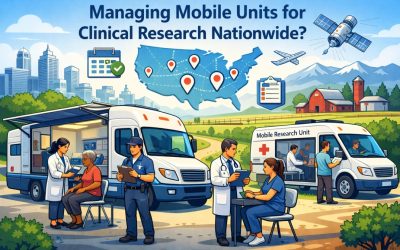Technology is what leads our society to evolve. Various industries and businesses benefit thanks to technology that helps them provide good customer service and get good results. With superb technology, companies can form good strategies to make a substantial profit while saving a good amount of money and reducing competition.
The logistics industry is one such industry that has been greatly impacted by technology. Let’s learn more about the logistics industry and how some of its areas are changing thanks to technological development.
What is the logistics industry
Logistics in layman’s terms is the management of complex operations in easier and more efficient ways. Logistics entails more than just delivering items to customers. Both digital and retail are part of a revolution that is changing the way we buy things. In eCommerce, good logistics can benefit both sales and the customer experience. The logistics industry uses cut-throat technologies to ensure successful business operations and the availability of products to customers.
Use of technology in the logistics industry
As in any industry, in the logistics industry, technology is quite widespread and has applications in all areas in order to increase productivity. Take a look at the six examples of how technology is being used to improve the working process.
Tracking system for shipments
Previously, customers used to book shipments, receive an estimated delivery date, and then be left in the dark unless they chose to call. Customers can now access shipping and tracking systems around the clock thanks to technological advancements like the internet and software. This improves the customer experience but also saves the firm time and money.
It enables users to track and monitor their shipments. It provides shipment and message notifications, customized reports, and customer accounts with information about the consignment assigned to them. These systems improve the overall user experience.
Use of automation or AI
Automation is the practice of utilizing software data to boost machine efficiency to produce the best outcomes with high precision. The use of automated tools in various businesses is slowly becoming popular. Warehousing, return management, and supply chain is already employing technologies powered by automation or AI in the logistics business.
AI is useful in modern logistics as it can help plan and predict product routes, as well as determine the most effective way to transport goods to different locations safely. AI-enabled automation eliminates the need for e-commerce businesses while allowing other businesses to manage their day-to-day obligations. Unmanned vehicles for transportation and delivery are also becoming a reality as technology evolves.
Internet of things (IoT)
The condition of the products can also be tracked with the help of IoT to ensure they are handled properly. This feature can be useful for optimizing the logistics processes and management of inventory levels. Not only IoT helps companies cut significant costs, but it also enhances efficiency and decision-making.
Significantly enhanced GPS accuracy
GPS devices not only help frustrated drivers while they are on road, but they also improve their productivity. These devices also play an important role to improve the supply change while tracking the truck’s location. GPS tracking devices provide easy paths to follow for truck drivers so that they can reach their destination on time which will satisfy the customers.
Big data usage for real-time analytics
Businesses can analyze their e-commerce logistics in real-time to make more informed decisions thanks to Big Data. It becomes hard for any company in the logistics industry to manage large amounts of supply chain data manually without any errors. Such errors can harm the company’s operations and can lead to various losses in the long run.
Since large volumes of data need more serious analysis than previously, Big Data tools were developed to aid in real-time data analytics. By offering insights into recurring patterns and trends, such technology can aid in e-commerce logistics. This will also assist a company in forecasting the overall logistics and supply chain performance of the organization.
Social media improvement
Social media has come a long way. At this point, everyone checks out all sorts of media posts or is connected to various social media sites or apps. One may not know this but the power of social media has been optimizing the logistics industry and its operation for a long time.
These platforms are increasingly becoming the most convenient and effective means for businesses to engage with their clients, transmitting urgent information, industry news, and customer comments. Thanks to social media platforms, consumers can ask questions to a company regarding the products and get answers. The companies can also get feedback on their products or services that they can improve on.
Conclusion
To remain competitive and increase productivity it’s essential to keep up with the newest technologies such as digital brokerage, 5G, electric vehicles, green warehouses, and blockchain. Transportation, international transportation (ocean and air), supply chain management, and cargo tracking have all benefited from technological development.
The logistics industry benefits greatly from cutting-edge technology and will continue to expand as additional breakthroughs are achieved. Technology advances will continue to push the boundaries for many years to come.
More must-read stories from Enterprise League:
- Common hiring mistakes that employers make and how to prevent them.
- Profitable online education business ideas that you should be aware of.
- B2B payment solutions that can help you transform your business.
- The best apps for entrepreneurs that will help you achieve your goals.
- How to ask for a deposit in a contract without being awkward or losing a client.
Related Articles
Who Offers the Best Commercial Dock and Door Repair and Installation Services? These Are 5 Options in Baltimore, MD
Baltimore, Maryland, is a hub of warehouse and business activity where critical gateways for logistics, including commercial doors and loading docks, must operate reliably to maintain security, safety and efficient workflow. A malfunctioning dock lever or a stuck...
Who Are the Top Residential Moving Companies? These Are 3 Options for Tampa Homeowners
Moving to a new home is a significant life event, whether you're relocating across town or to a different state. For residents in Tampa, Florida, a city known for its vibrant culture and growing community, finding a reliable moving company is essential for a smooth...
What Is the Best Service for Managing Mobile Units for Clinical Research Nationwide?
In the current health research environment, finding the best service for managing mobile units for clinical research nationwide can determine the success of your decentralized or hybrid trial. Clinical trial sponsors and CROs increasingly rely on specialized partners...
Who Offers the Best Commercial Dock and Door Repair and Installation Services? These Are 5 Options in Baltimore, MD
Baltimore, Maryland, is a hub of warehouse and business activity where critical gateways for logistics, including commercial doors and loading docks, must operate reliably to maintain security, safety and efficient workflow. A malfunctioning dock lever or a stuck...
Who Are the Top Residential Moving Companies? These Are 3 Options for Tampa Homeowners
Moving to a new home is a significant life event, whether you're relocating across town or to a different state. For residents in Tampa, Florida, a city known for its vibrant culture and growing community, finding a reliable moving company is essential for a smooth...






